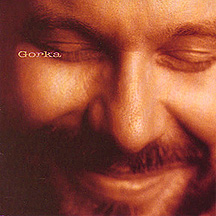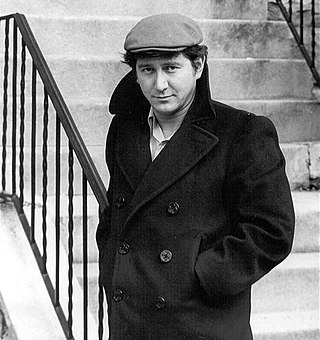
Philip David Ochs was an American songwriter and protest singer. Ochs was known for his sharp wit, sardonic humor, political activism, often alliterative lyrics, and distinctive voice. He wrote hundreds of songs from the 1960s to early 1970s and released eight albums.
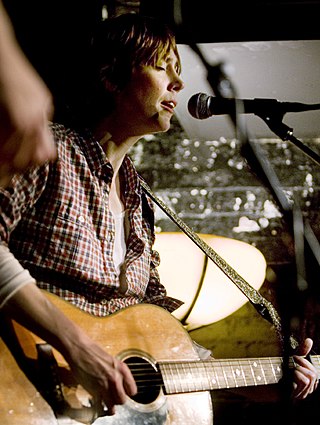
Elizabeth Caroline Orton is an English musician, known for her "folktronica" sound, which mixes elements of folk and electronica. She was initially recognised for her collaborations with William Orbit, Andrew Weatherall, Red Snapper and the Chemical Brothers in the mid-1990s. Her UK/US first solo album, Trailer Park, received much critical acclaim in 1996. Orton developed a devoted audience with the release of the BRIT Award-winning album Central Reservation (1999) and the 2002 UK top 10 album, Daybreaker. Her 2006 album, Comfort of Strangers, was followed by a break during which Orton gave birth to her daughter and collaborated with the British guitarist Bert Jansch. Orton returned with Sugaring Season in 2012, which moved towards a purer acoustic sound, followed by a return to electronic music with Kidsticks, released in 2016.
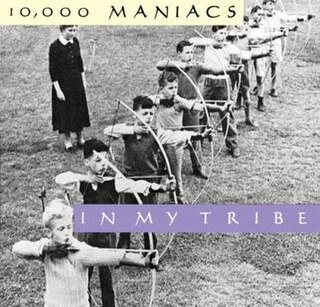
In My Tribe is the third studio album from the American alternative rock band 10,000 Maniacs. Released on July 27, 1987 by Elektra Records, it was their second major-label album and their first to achieve large-scale success. John Lombardo, Natalie Merchant's songwriting partner on previous albums, had left the band in 1986, and In My Tribe saw Merchant begin to collaborate with the other members of the band, most notably with Rob Buck.
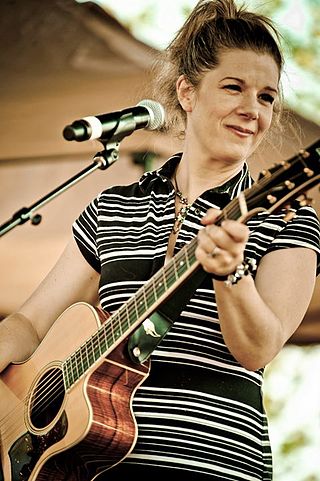
Dorothy Snowden "Dar" Williams is an American pop folk singer-songwriter from Mount Kisco, New York. Hendrik Hertzberg of The New Yorker has described Williams as "one of America's very best singer-songwriters."

Lucy Kaplansky is an American folk musician based in New York City. Kaplansky has a PhD in clinical psychology from Yeshiva University and plays guitar, mandolin, and piano.

Are You Experienced is the debut studio album by the Jimi Hendrix Experience, released in May 1967. The album was an immediate critical and commercial success, and is widely regarded as one of the greatest albums of all time. It features Jimi Hendrix's innovative approach to songwriting and electric guitar playing, which soon established a new direction in psychedelic and rock music as a whole.
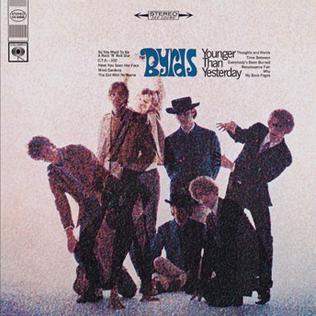
Younger Than Yesterday is the fourth studio album by the American rock band the Byrds and was released on February 6, 1967, on Columbia Records. It saw the band continuing to integrate elements of psychedelia and jazz into their music, a process they had begun on their previous album, Fifth Dimension. In addition, the album captured the band and record producer Gary Usher experimenting with new musical textures, including brass instruments, reverse tape effects and an electronic oscillator.

Summerteeth is the third studio album by the American alternative rock band Wilco, released on March 9, 1999, by Reprise Records. The album was heavily influenced lyrically by 20th century literature, as well as singer Jeff Tweedy's marital problems. Unlike previous albums, Summerteeth was heavily overdubbed in the studio with Pro Tools. Tweedy and Jay Bennett wrote most of the album in the studio, a contrast to the band's previous albums, which were often recorded live by the entire band with minimal overdubs.

John Gorka is an American singer-songwriter. In 1991, Rolling Stone magazine called him "the preeminent male singer-songwriter of what has been dubbed the New Folk Movement."

Marcus Garvey is the third album by reggae artist Burning Spear, released in 1975 on Fox Records in Jamaica and then internationally on Island Records later in the year. The album is named after the Jamaican National Hero and Rastafari movement prophet Marcus Garvey. A dub version of it was released four months later as Garvey's Ghost.

Eliza Gilkyson is a Taos, New Mexico–based folk musician. She is the daughter of songwriter and folk musician Terry Gilkyson and his wife, Jane. Her brother is guitarist Tony Gilkyson, who played with the Los Angeles–based bands Lone Justice and X. She is married to scholar and author Robert Jensen. Gilkyson is a two-time Grammy Award nominee, receiving a nomination for Best Contemporary Folk Album in 2004 and Best Folk Album in 2014.
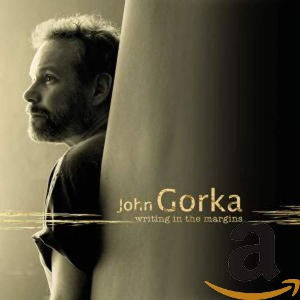
Writing in the Margins is the tenth studio album by folk singer-songwriter John Gorka. It was released on July 11, 2006, by Red House Records and debuted at number one on the Folk Music Radio Airplay Chart. One departure from previous recordings is the inclusion of a couple of cover songs that blend nicely with Gorka's own compositions. Gorka received some encouragement from Nanci Griffith to record Townes Van Zandt's "Snow Don't Fall", and pays tribute to a personal hero by covering Stan Rogers' "Lockkeeper". Gorka also shares writing credit with his wife, Laurie Allman, on several tracks.

Kickin' Out the Footlights...Again is a studio album by American country music artists George Jones and Merle Haggard, released in 2006.

Old Futures Gone is the ninth studio album by folk singer-songwriter John Gorka. It was released on September 23, 2003, by Red House Records. The album debuted at number two on the Folk Music Radio Airplay Chart and reached number one in October 2003. Gorka shares writing credit with his wife, Laurie Allman, for the lyrics of "Trouble and Care".

The Company You Keep is the eighth studio album by folk singer-songwriter John Gorka. It was released on March 13, 2001, by Red House Records.

Between Five and Seven is the sixth studio album by folk singer-songwriter John Gorka. It was released in August 1996. It is the last of the five albums Gorka recorded for Windham Hill/High Street Records before returning to the smaller, Red House label. Gorka produced the album with John Jennings who also produced Gorka's previous record, Out of the Valley. Unlike the previous record made in Nashville, Tennessee, the recording was done at Paisley Park Studios, Chanhassen, Minnesota and the instrumentation has been described as "more acoustic, less pop-oriented." Paisley Park is southwest of Minneapolis and is the studio designed and owned by the artist, Prince.
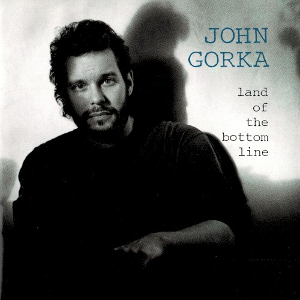
Land of the Bottom Line is the second album by contemporary folk singer-songwriter John Gorka. The album was also Gorka's major label debut for High Street Records/Windham Hill Records. The album was highly acclaimed by critics at the time, and continues to be cited by some as Gorka's finest work. The album's fifteen tracks and near hour-long length also provided an unusually large amount of music for a recording of that era. As Sing Out! editor Mark Moss noted in a review, the topics covered run "the gamut of John's favorite subjects: love, hard luck, local characters, and more."

Going Back to Brooklyn is an album by American folk and blues singer Dave Van Ronk, released in 1985.
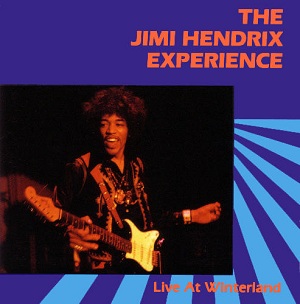
Live at Winterland is a live album by The Jimi Hendrix Experience. It compiles performances from the band's three concerts at the Winterland Ballroom in San Francisco, where they played two shows each night on October 10, 11 and 12, 1968. The album was released posthumously by Rykodisc in 1987 and was the first Hendrix release to be specifically conceived for the compact disc format.
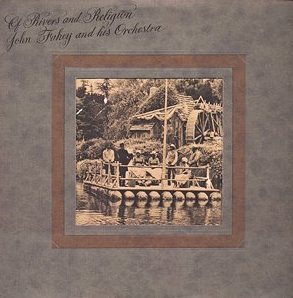
Of Rivers and Religion is an album by American folk musician John Fahey, released in 1972. It was his first recording on a major label and is credited to John Fahey and His Orchestra. It marked a significant change from Fahey's previous releases, incorporating a backing band and performing songs and arrangements in a Dixieland jazz style. Although Time picked it as one of the Top Ten albums of 1972, it was also a difficult album to market and had little enthusiasm at Reprise.
